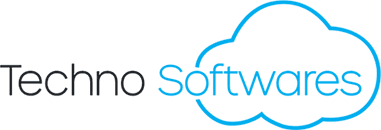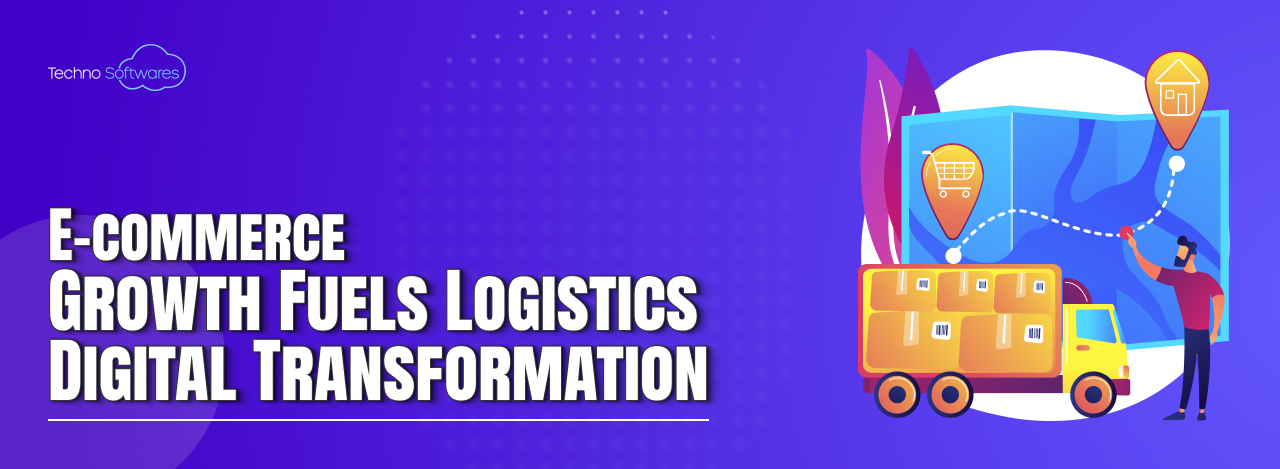Scraping Job Portals like Indeed and Glassdoor for Recruitment Insights
In the rapidly evolving landscape of recruitment, job data scraping has emerged as a pivotal tool for organizations seeking to enhance their hiring processes. Job data scraping refers to the automated extraction of job-related information from various online sources, including job boards, company websites, and social media platforms. This practice allows recruiters to gather vast amounts of data on job postings, candidate profiles, and industry trends, which can be instrumental in making informed hiring decisions.
The importance of job data scraping lies in its ability to provide real-time insights into the job market, enabling HR professionals to stay ahead of the competition. Moreover, the significance of job data scraping extends beyond mere data collection. It empowers organizations to analyze trends in job requirements, salary benchmarks, and skill demands across different sectors.
By understanding these dynamics, companies can tailor their recruitment strategies to attract the right talent. For instance, if a particular skill set is in high demand within a specific industry, organizations can adjust their job descriptions and outreach efforts accordingly. This proactive approach not only enhances the quality of hires but also optimizes the overall recruitment process.
Key Takeaways
- Job data scraping provides valuable insights for recruitment strategies
- Scraping job portals can help in identifying trends and patterns in the job market
- Challenges of scraping job portals include data accuracy and compliance issues
- Techno Softwares can assist HR tech startups in building job data engines
- Customized job data engines can be integrated with HR tech platforms for specific industry needs
The Benefits of Scraping Job Portals for Recruitment Insights
Scraping job portals offers a multitude of benefits that can significantly enhance recruitment strategies. One of the primary advantages is the ability to access a wealth of information that would otherwise be time-consuming and labor-intensive to gather manually. By automating the data collection process, recruiters can quickly compile comprehensive reports on job market trends, including the most sought-after skills, average salaries, and geographic demand for specific roles.
This data-driven approach allows organizations to make strategic decisions based on empirical evidence rather than intuition. Additionally, scraping job portals enables companies to benchmark their own job postings against competitors. By analyzing how similar roles are presented in the market, organizations can refine their job descriptions to make them more appealing to potential candidates.
For example, if competitors are offering flexible work arrangements or unique benefits that attract talent, companies can incorporate similar offerings into their own recruitment strategies. This competitive analysis not only helps in attracting top talent but also fosters a culture of continuous improvement within the organization.
Challenges of Scraping Job Portals for Recruitment Insights

Despite its numerous advantages, scraping job portals for recruitment insights is not without its challenges. One significant hurdle is the variability in website structures and formats. Different job portals may present data in diverse ways, making it difficult to create a standardized scraping process.
Recruiters must invest time and resources into developing sophisticated algorithms that can adapt to these variations, ensuring that the data collected is accurate and relevant. Another challenge lies in legal and ethical considerations surrounding data scraping. Many websites have terms of service that explicitly prohibit automated data extraction.
Violating these terms can lead to legal repercussions and damage an organization’s reputation. Therefore, it is crucial for recruiters to navigate these legal landscapes carefully and ensure compliance with relevant regulations. This often requires a thorough understanding of copyright laws and data protection regulations, which can vary significantly across jurisdictions.
How Techno Softwares Can Help HR Tech Startups
Techno Softwares has positioned itself as a leader in providing innovative solutions for HR tech startups looking to leverage job data scraping for recruitment insights. With a deep understanding of the challenges faced by these startups, Techno Softwares offers tailored solutions that streamline the data scraping process while ensuring compliance with legal standards. Their expertise in developing robust scraping tools allows startups to focus on their core competencies while benefiting from accurate and timely data.
Moreover, Techno Softwares provides comprehensive support throughout the implementation process. From initial consultation to ongoing maintenance, their team works closely with HR tech startups to ensure that the scraping tools are effectively integrated into existing systems. This partnership not only enhances the efficiency of recruitment processes but also empowers startups to make data-driven decisions that can significantly impact their growth trajectory.
Building Job Data Engines with Techno Softwares
The creation of job data engines is a critical step for organizations aiming to harness the power of scraped job data effectively. Techno Softwares specializes in building customized job data engines that cater to the specific needs of various industries. These engines are designed to aggregate and analyze data from multiple sources, providing recruiters with actionable insights that can inform their hiring strategies.
A well-constructed job data engine incorporates advanced analytics capabilities, allowing organizations to visualize trends and patterns in real-time. For instance, by utilizing machine learning algorithms, these engines can predict future hiring needs based on historical data and market trends. This predictive capability enables HR professionals to proactively address talent shortages and align their recruitment efforts with business objectives.
By leveraging Techno Softwares’ expertise in building these engines, organizations can transform raw data into strategic assets that drive recruitment success.
The Process of Scraping Job Portals for Recruitment Insights

Identifying Target Job Portals
Initially, organizations must identify the specific job portals they wish to target based on their recruitment needs. This selection process often involves evaluating factors such as the portal’s popularity within a particular industry and the quality of job postings available.
Developing a Scraping Strategy
Once the target portals are identified, the next step involves developing a scraping strategy that outlines how data will be extracted. This includes determining which data points are most relevant—such as job titles, descriptions, company names, locations, and salary ranges—and establishing a timeline for regular updates. Afterward, organizations can deploy scraping tools that systematically extract this information while adhering to ethical guidelines and legal requirements.
Data Cleaning and Analysis
Following data extraction, it is essential to clean and organize the collected information for analysis. This may involve removing duplicates, standardizing formats, and categorizing data based on specific criteria. Once cleaned, the data can be analyzed using various analytical tools to derive insights that inform recruitment strategies.
By following this structured process, organizations can maximize the value derived from scraped job data.
Ensuring Data Accuracy and Compliance in Job Data Scraping
Data accuracy is paramount when it comes to scraping job portals for recruitment insights. Inaccurate or outdated information can lead to misguided hiring decisions and ultimately impact an organization’s performance. To ensure accuracy, organizations must implement rigorous validation processes that cross-check scraped data against reliable sources.
This may involve manual verification or utilizing automated tools designed to flag inconsistencies. Compliance with legal standards is equally important in the realm of job data scraping. Organizations must be aware of the terms of service for each targeted portal and ensure that their scraping activities do not violate any regulations.
Additionally, adherence to data protection laws such as GDPR or CCPA is crucial when handling personal information from candidates or companies. Establishing clear protocols for data usage and storage can help mitigate risks associated with non-compliance.
Leveraging Insights from Scraped Job Data for Recruitment Strategies
The true value of scraped job data lies in its potential to inform and enhance recruitment strategies. By analyzing trends in job postings and candidate profiles, organizations can identify gaps in their current hiring practices and make necessary adjustments. For example, if analysis reveals a growing demand for specific technical skills within a particular industry segment, HR teams can prioritize sourcing candidates with those skills in mind.
Furthermore, insights derived from scraped data can guide organizations in crafting more effective employer branding strategies. Understanding what candidates are looking for—such as work-life balance or career development opportunities—enables companies to tailor their messaging accordingly. By aligning their value propositions with candidate expectations, organizations can improve their chances of attracting top talent in a competitive market.
Customizing Job Data Engines for Specific Industry Needs
Different industries have unique requirements when it comes to recruitment, making customization of job data engines essential for maximizing effectiveness. Techno Softwares recognizes this need and offers tailored solutions that cater to specific industry demands. For instance, healthcare organizations may require a focus on certifications and specialized skills, while tech companies might prioritize programming languages and project experience.
By customizing job data engines to reflect these industry-specific needs, organizations can ensure that they are capturing relevant insights that directly impact their hiring processes. This level of customization not only enhances the accuracy of scraped data but also allows recruiters to develop targeted strategies that resonate with candidates in their respective fields.
Integrating Job Data Engines with HR Tech Platforms
The integration of job data engines with existing HR tech platforms is a crucial step toward creating a seamless recruitment process. Techno Softwares specializes in facilitating this integration by ensuring that scraped data flows smoothly into applicant tracking systems (ATS), human resource information systems (HRIS), and other relevant platforms. This interoperability allows HR teams to access real-time insights without having to switch between multiple systems.
Moreover, integrating job data engines with HR tech platforms enhances collaboration among team members by providing a centralized repository of information. Recruiters can easily share insights derived from scraped data with hiring managers and other stakeholders, fostering a more collaborative approach to recruitment decision-making. This integration ultimately leads to improved efficiency and effectiveness in hiring processes.
Future Trends in Job Data Scraping for Recruitment Insights
As technology continues to advance, the future of job data scraping for recruitment insights is poised for significant transformation. One emerging trend is the increased use of artificial intelligence (AI) and machine learning algorithms in analyzing scraped data. These technologies enable organizations to uncover deeper insights by identifying patterns and correlations that may not be immediately apparent through traditional analysis methods.
Additionally, there is a growing emphasis on ethical considerations surrounding data scraping practices. As awareness around privacy concerns increases, organizations will need to adopt more transparent approaches to data collection and usage. This may involve implementing consent mechanisms or providing candidates with options regarding how their information is utilized.
Furthermore, as remote work becomes more prevalent, there will likely be an increased focus on analyzing remote job postings and candidate preferences related to flexible work arrangements. Understanding these dynamics will be crucial for organizations looking to attract top talent in an increasingly competitive landscape. In conclusion, as organizations continue to navigate the complexities of recruitment in a digital age, leveraging job data scraping will remain an essential strategy for gaining insights into market trends and candidate preferences.
By embracing innovative technologies and ethical practices, companies can position themselves for success in attracting and retaining top talent.
If you are interested in learning more about how Techno Softwares can help HR tech startups build job data engines, check out their case study on how custom software transformed a business’s operations here. This article provides valuable insights into the process and benefits of utilizing custom software solutions in the recruitment industry. Additionally, you may also want to explore their blog post on the role of continuous integration and continuous deployment (CI/CD) in software development here and how a high-performance website can boost sales for automotive dealerships here.
Get Scraping Service (FREE Demo)
FAQs
What is job scraping?
Job scraping is the process of extracting job listings and related data from various job portals and websites using automated tools or web scraping techniques.
Why is job scraping important for recruitment insights?
Job scraping provides valuable insights into the job market, including trends in job postings, salary information, in-demand skills, and employer hiring patterns. This data can help HR professionals and recruiters make informed decisions and develop effective recruitment strategies.
How can job scraping benefit HR tech startups?
For HR tech startups, job scraping can provide a competitive edge by offering comprehensive job market data and insights. This data can be used to build innovative recruitment tools, enhance candidate sourcing, and improve the overall recruitment process.
What are some popular job portals for scraping job data?
Popular job portals for scraping job data include Indeed, Glassdoor, LinkedIn, Monster, CareerBuilder, and many others. These platforms offer a wide range of job listings and related information that can be valuable for recruitment insights.
How can Techno Softwares help HR tech startups build job data engines?
Techno Softwares offers custom web scraping and data extraction solutions tailored to the specific needs of HR tech startups. Their expertise in web scraping technologies and data engineering can help startups build robust job data engines for recruitment insights.





